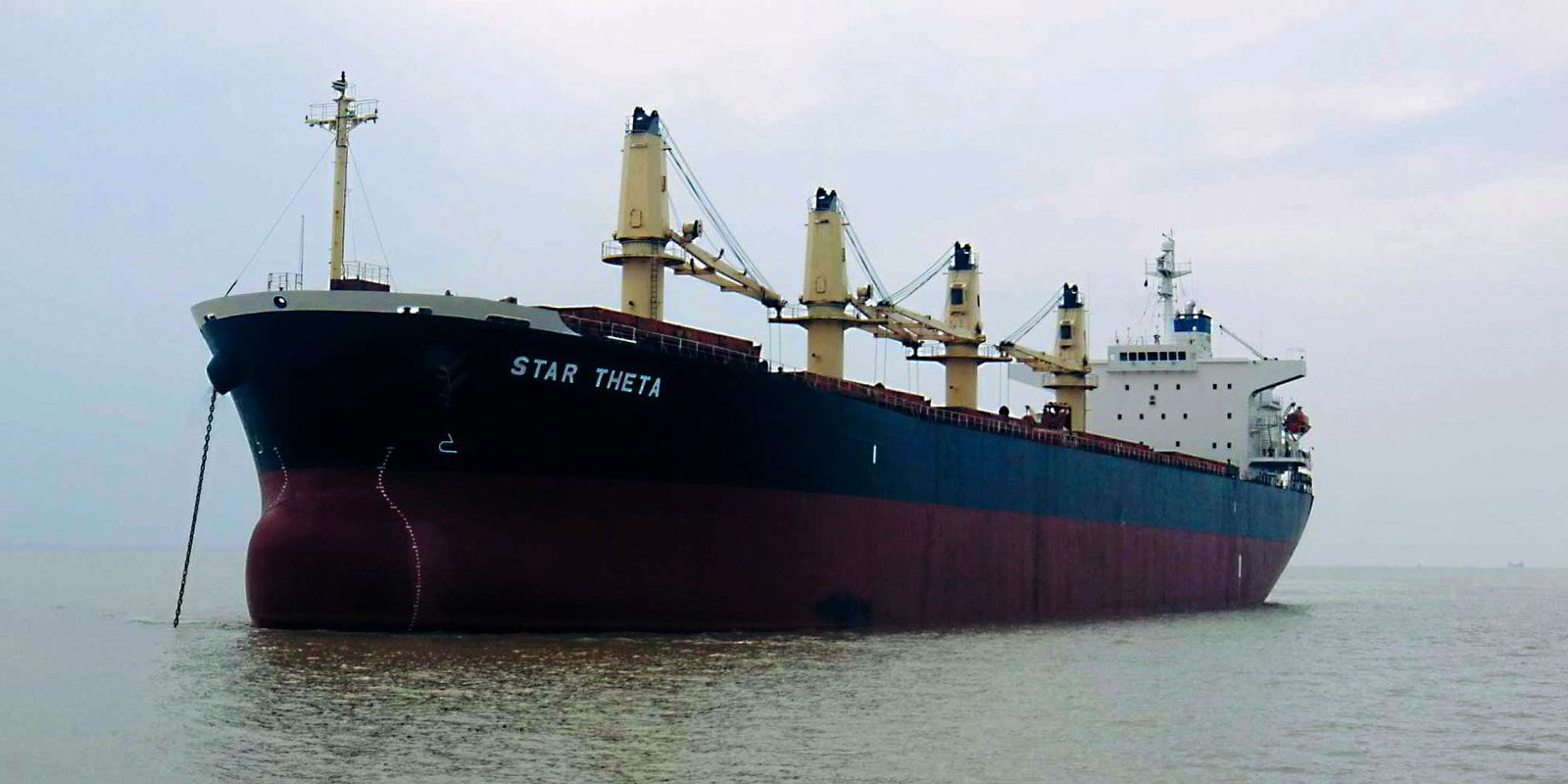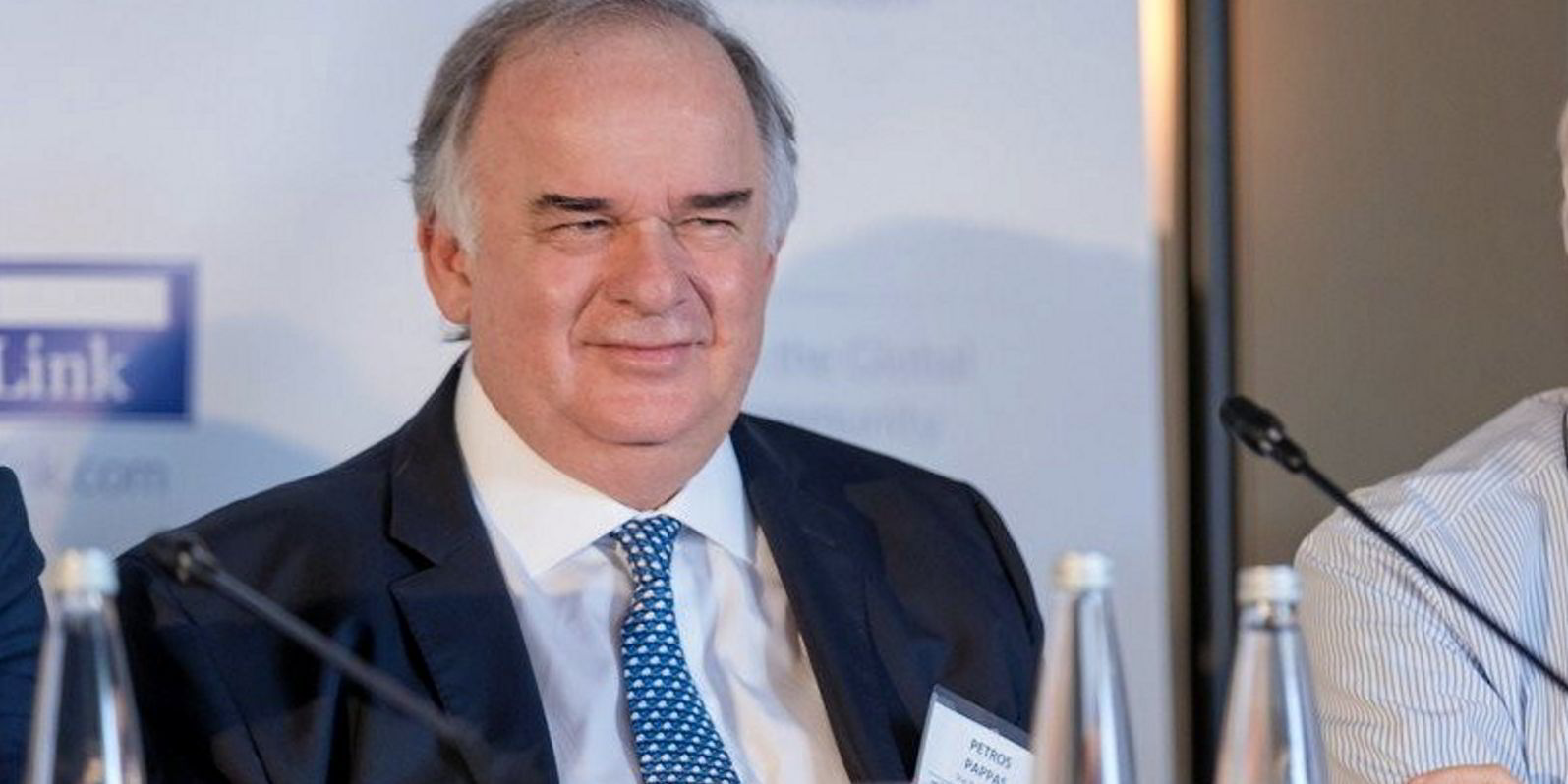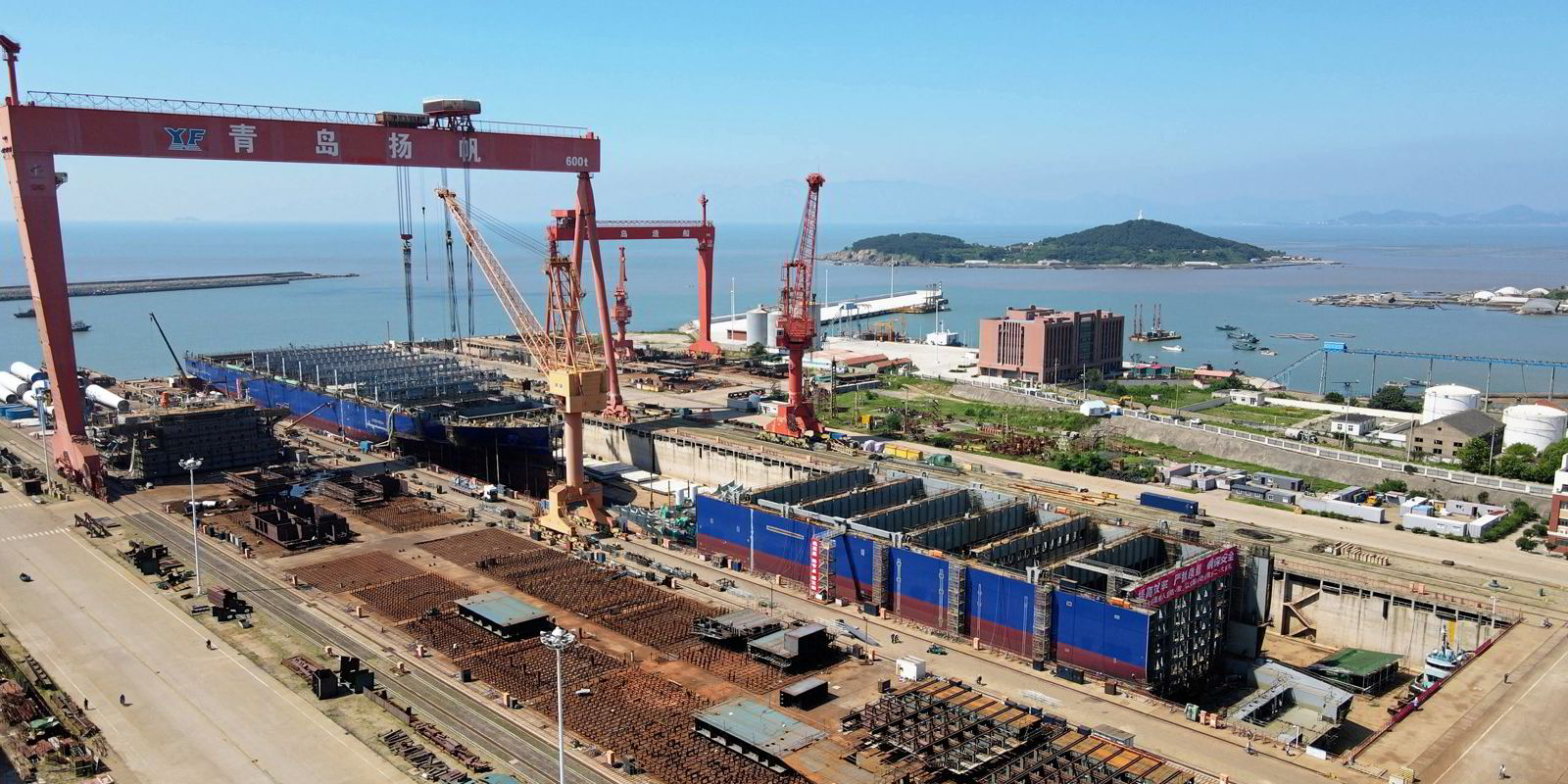Star Bulk Carriers, an operator of about 120 scrubber-fitted bulkers, confirmed an order for kamsarmax newbuildings while accelerating the sale of older vessels on the secondhand market.
“We have decided to take further steps towards our fleet renewal,” chief executive Petros Pappas said during the company’s third-quarter earnings released late on Monday.
These moves are in line with the strategy laid out by the Greek executive and major Star Bulk shareholder in an interview with TradeWinds last month, of making incremental fleet renewal moves until the dust settles on the issue of future fuels.
In its earnings release, Star Bulk confirmed a separate report by TradeWinds last month that it has contracted two firm, 82,000-dwt kamsarmax newbuildings at Qingdao Yangfan Shipbuilding due for delivery in November 2025 and June 2026, respectively.
The earnings release disclosed furthermore that Star Bulk has options for another two such vessels, which would be due for delivery in December 2025 and August 2026.
Apart from being fitted with the “latest available and most fuel-efficient” MAN B&W main engine coming into production in 2024 and a shaft generator, the newbuildings come with options to equip them with scrubbers, as well as with “alternate marine power provisions”.
Star Bulk did not elaborate on the price of the newbuildings or specify the nature of the alternate marine power provisions.
The orders are just a part of a wider programme to actively manage the company’s fleet, which includes a spate of ship sales on the secondhand market.
Star Bulk revealed having divested five ageing, smaller ships between September and November for total gross proceeds of $72.5m.
In combination with the sale in previous quarters of two capesizes to Norden and of five supramaxes to Chinese interests, Star Bulk has shaken off a dozen vessels on the secondhand market this year.
“We continue to dispose of vessels opportunistically,” Pappas commented in the earnings statement on Monday.
These sales have been lucrative for the company.
Star Bulk booked an $18.9m gain from ship divestments in the third quarter and said another $15.6m vessel sale gain will follow in the fourth.
Chinese buyers swoop in
The latest batch of five Star Bulk ships sold includes its two oldest — the 53,000-dwt Star Zeta and the 52,400-dwt Star Theta (both built 2003).
US brokers have reported the vessels fetched $8m and $8.5m, respectively, in deals with Hong Kong-based buyers.
Star Bulk’s three other recent ship sales, however, are news to the market.
The 63,400-dwt Star Athena (built 2015), the 58,700-dwt Star Glory (built 2012) and the 82,200-dwt Star Jennifer (built 2006) are expected to be delivered to their new, undisclosed owners by the end of the year.
Supramaxes are the smallest type of vessels in Star Bulk’s versatile fleet and the company seems particularly keen to reduce its exposure to them.
In the second quarter, Star Bulk announced the sale of the 56,500-dwt sister ship quintet Star Aquila, Star Centaurus, Star Columba, Star Hercules and Star Cepheus (all built 2012).
The new names of the five ships suggest they all went to the same Chinese buyers, as they are now trading as Xin Hai Tong 32, 33, 35, 36 and 37, respectively.
Star Bulk is shaking off some bigger ships as well.
As TradeWinds already reported, the company sold in March two 2011-built capesizes to Norden at $32.5m each: the 179,700-dwt Star Borealis (renamed Nord Ferrum) and the 179,600-dwt Star Polaris (renamed Nord Magnes).
Dividend cut
All these vessel sales have helped keep Star Bulk profits broadly stable in the third quarter, despite a sluggish bulker market.
Net income for the period came in at $43.7m, down 60% year on year but down just 1.5% quarter on quarter.
Excluding non-cash items, however, adjusted net income dropped at a much steeper pace of 32% quarter on quarter, to $33.1m.
This probably explains why Star Bulk nearly halved its dividend to $0.22 per share in the third quarter from $0.40 in the second.
Slow markets caused Star Bulk’s time charter equivalent earnings to drop by 38% year on year to an average of $15,068 per day.
Pappas, however, is upbeat about the market outlook.
“We remain optimistic about the prospects of the dry bulk market due to increasingly favourable supply dynamics, the improving macro sentiment and large global infrastructure investment needs for the world’s green transition,” he said in the earnings statement.





